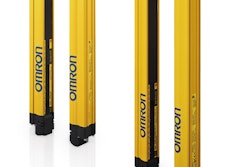This content was written and submitted by the supplier. It has only been modified to comply with this publication’s space and style.
Since 2011 MG2 has shared a partnership with the Research Centre of Pharmaceutical Engineering (RCPE) of Graz University, to develop advanced studies on the characterisation of powders handled by capsule fillers. The project led to the development of a predictive model suitable to help customers in the optimisation of the dosing process of their products.
The reference scenario: the protagonists of the story
The project arose from the need of some important pharmaceutical companies, MG2 customers, which wanted to examine in depth powder features and dosage systems, in order to improve process knowledge and optimise the production of drugs into hard shell capsules. To fulfil these requests, MG2 started a synergic cooperation with RCPE, an Austrian research centre working in the field of engineering and pharmaceutical process, a scientific partner with technological skills complementary to those of the Bolognese company. The project aimed to create a model, based on the chemical and physical characteristics of the powder to be dosed, which could predict its behaviour, enabling to identify the most suitable dosing system by using a scientific approach instead of an empiric one. MG2 started to pursue this approach in 2010, but the scientific contribution of RCPE, which joined at the end of 2011, represented a remarkable turning-point. Graz research centre put at MG2’s disposal its competences in the specific field of powders’ scientific measuring, while MG2 strengthened its R&D staff by recruiting a pharmaceutical chemist.
Purpose of the project
The main purpose of the partnership was to promote a dialogue between pharmaceutical chemistry and the mechanic world since the preliminary phases, which are a prelude to a common project. In fact, pharmaceutical companies tend to be mainly focused on their product in terms of effects on the patient, bioavailability, etc. On the other hand, machine manufacturers are mainly concerned with the behaviour of the product handled and machine performances. RCPE, which pursues applied pharmaceutical research, built a bridge between these two worlds, gaining a considerable scientific expertise and confirming its ability to successfully cooperate with industrial partners. RCPE is one of the centres entitled by the Austrian Government to receive European funds to finance its research activities, as long as at least 25% of the expenses are co-financed by the cooperation with an industrial partner. That is why the synergy with a high-technology company such as MG2 was essential. As for MG2, which boasts a consolidated know-how in the field of capsule fillers, the study of powder features and different dosing systems, aiming to develop a predictive model of their interaction depending on the parameters, had two main purposes: on the one hand, it was useful to understand the process in accordance with the powder to handle; on the other hand, it helped to optimise the process performances, by suggesting the necessary adjustments for the machines and the powders’ formulations, from a “quality by design” point of view.
Powder dosage and relevant critical issues
When producing pharmaceuticals into capsules, it is necessary to handle three components: the capsule itself; the API, which is the actual active principle; the excipients, which are substances used to convey the active principle where it is needed, and to improve the dosage technical features of the API itself. The project was mainly focused on the dosage into capsules of powders to be inhaled, where MG2 boasts an experience of over twenty years and is recognized as a worldwide leader. These applications involve several difficulties: first of all, the quantity of powder to dose is very small, often lower than 5 mg; sometimes its characteristics make the product difficult to be dosed, as powders are made by extremely small particles, up to a few microns, which do not flow and therefore stick to the metal surfaces very easily. It is essential to study the chemical-physical characteristics of formulations, such as shape, dimension and type of particles. Since the preliminary phases of the project, it was necessary to determine the powder features which could be critical for the process and the measuring criteria to be adopted, among those available. As there is no standard scientific reference for these criteria, it was necessary to choose among the proposals of scientific literature and compile a new protocol from scratch, based on the characteristics and the relevant measuring methods, to be diversified depending on the powder’s use: for inhalation or oral absorption.
Methodology employed
The project practically started with the analysis of the most recent scientific publications concerning the characterisation of powders for encapsulation; then, several measurements and analysis were carried out on a wide range of powders, in order to compile a list of material attributes, i.e. scientific parameters defining the powders to be dosed. At the same time, thanks to MG2’s experience, it was possible to identify which machine settings can condition the process. Information concerning powder characterisation along with those concerning process parameters were used to structure a DOE approach (Design of Experiment): a systematic method to determine the relationship between factors affecting a process and the output of that process. It is used to find cause-and-effect relationships to manage process inputs in order to optimize the output. In the specific case, the DOE aimed to find correlations between 3 categories of inputs: powders’ characteristics (flowability, density, dimension of particles…), machine parameters (dosator’s diameter, rotation speed, dosing chamber…) and environmental conditions (humidity, temperature…), and measuring the dosing quality as the output.
The development of a predictive process suitable to be repeated on all MG2 machines
To carry out these studies, MG2 provided Graz research centre with a capsule filler for laboratories mod. Labby: a small unit which features all working principles of the capsule fillers suitable for pharmaceutical productions, manufactured by the Bolognese company. The same tests were performed on production machines, obtaining the same results, thus demonstrating the scalability of the model. So MG2 can offer the customer a full service for process optimisation, from R&D phases up to production. In the end, the Company ever-increasing expertise is an essential asset to develop and design new machines and solutions.






















